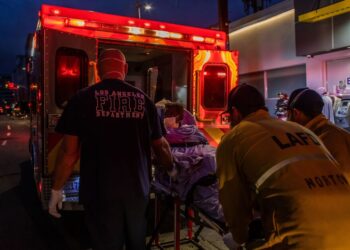Just 48 hours after her birth in a Seattle-area hospital in 2021, Layla Babayev was undergoing surgery for a bowel obstruction.
Two weeks later, she had another emergency surgery, and then developed meningitis. Layla spent more than a month in neonatal intensive care in three hospitals as doctors searched for the cause of her illness.
Her parents enrolled her in a clinical trial to check for a genetic condition. Unlike genetic tests focused on a few disease-causing variants that can take months to produce results, the study at Seattle Children’s Hospital would sequence Layla’s entire genome, looking for a broad range of abnormalities — and potentially offer answers in under a week.
The test found Layla had a rare genetic disorder that caused gastrointestinal defects and compromised her immune system. The findings led doctors to isolate her, give her weekly infusions of antibiotics, and contact other hospitals that had treated the same condition, said her father, Dmitry Babayev.
Today, Babayev credits the test, known as rapid whole-genome sequencing, for saving his daughter’s life. “It is why we believe Layla is still with us today,” he said.
Like her disorder, Layla’s experience is rare.
Few hospitalized babies with an undiagnosed illness undergo whole-genome sequencing — a diagnostic tool that allows scientists to quickly identify genetic disorders and guide clinicians’ treatment decisions by analyzing a patient’s complete DNA makeup. That’s largely because many private and public health insurers won’t cover the $4,000-to-$8,000 expense.
But an alliance of genetic testing companies, drugmakers, children’s hospitals and doctors have lobbied states to increase coverage under Medicaid — and their efforts have begun to pay off.
Since 2021, eight state Medicaid programs have added rapid whole-genome sequencing to their coverage or will soon cover it, according to GeneDX, a provider of the…
Read the full article here







